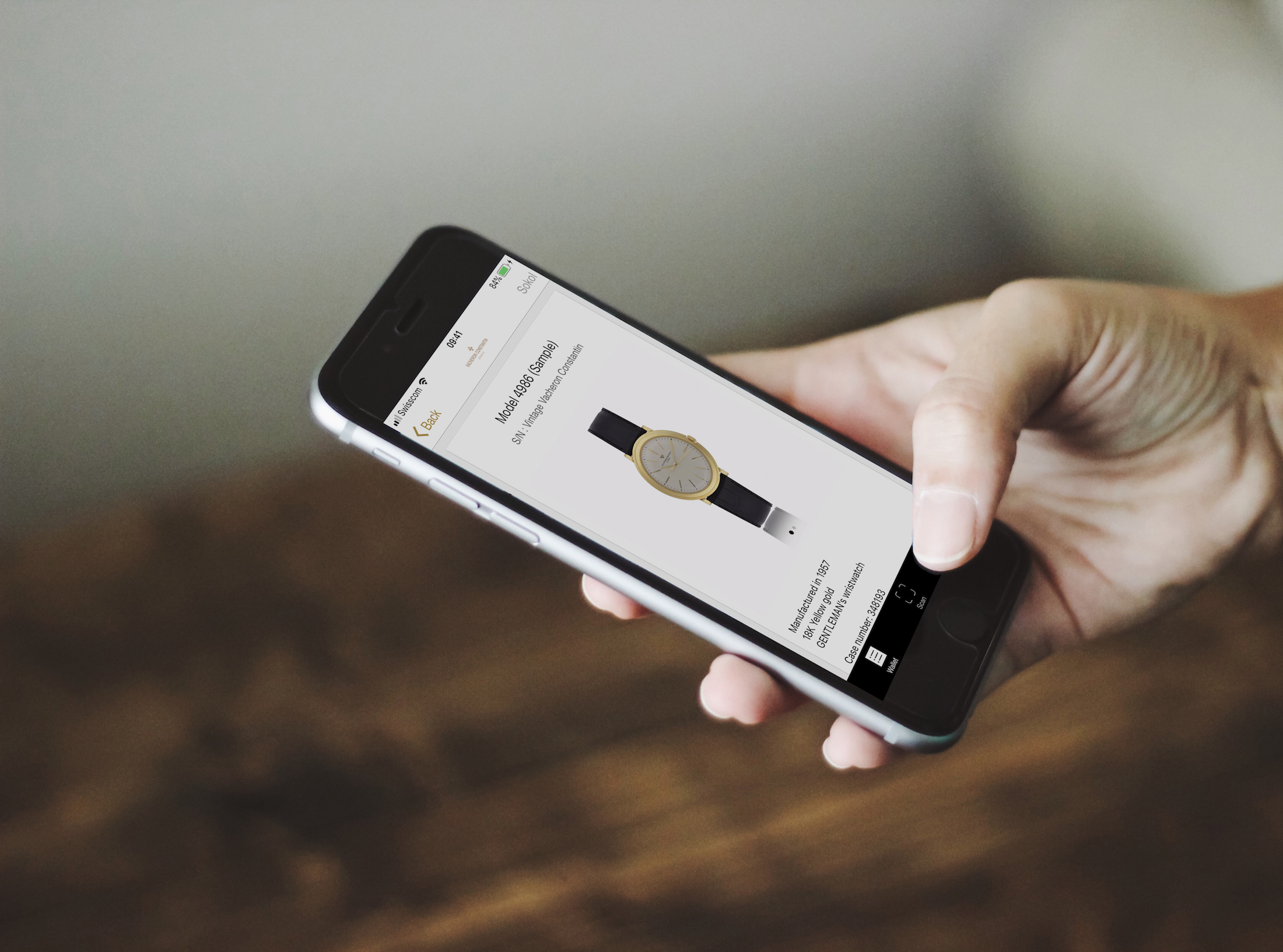Traditional Swiss watchmaker Vacheron Constantin ventures into new technologies to ensure authenticity.
Watches are investments — or so goes the common refrain. While this sentiment may or may not hold true, the real fact is that long-lived luxury timepieces will end up changing hands at some point or another — whether on the secondary retail market, as gifts, or as part of a collector’s estate. The main concern whenever something of such high value changes owners is, of course, whether or not the product is authentic.
The days of knockoff luxury watches are unfortunately not behind us, and producers of forgeries are only getting better at their craft. The processes of authentication have thus far mostly relied on trained experts who can identify certain watches at a hundred paces, but that is little comfort to the consumer who has limited access to these individuals. For most watch buyers, their only certificate of authenticity is a piece of paper, which could easily have been forged alongside the watch they bought. Thanks to new technology, however, the days of paper certificates are numbered. Respected Swiss watchmaking brand Vacheron Constantin has become the first in the industry to debut the authentication certificates of the future — using blockchain, no less.
A blockchain, for those unfamiliar, is essentially an incorruptible record of all transactions. Each time-stamped piece of data (blocks—or in this case the ownership of a watch) is secured and bound to the next piece of data using cryptographic principles (the chain). At any one time, there are thousands, if not millions of computers linked to a blockchain network, each one containing a copy of this ledger. When a new transaction is initiated, a new block is created and chained to the previous one involving the same product—and it is individually recorded on all of these computers. A blockchain is therefore a unique record of a unique history and falsifying any one transaction would involve falsifying it in every computer containing the blockchain. In other words, virtually impossible. A genuine blockchain-certified Vacheron Constantin watch, for instance, would have its blockchain ledger traceable all the way back to Vacheron Constantin itself and have the digital fingerprint of every subsequent owner. Those concerned with privacy issues can also rest assured—the blockchain is anonymous and functions using unique ID numbers. According to the brand, a unique number will be assigned to each such timepiece, thereby making the two inseparable and guaranteeing the authenticity and provenance of the watch.

Vacheron Constantin is the pilot brand to debut this new technology for its parent Richemont Group, which is also the owner of the timepiece resale platform Watchfinder. The blockchain certification will begin with its Les Collectionneurs collection, which comprises vintage 20th century watches hunted down and verified by the maison’s heritage specialists. They are only made available to connoisseurs at dedicated Vacheron Constantin events. From now on, each Les Collectionneurs watch will be equipped with both a paper and a digital blockchain certificate.
The watch industry is usually behind the eight ball when it comes to adopting new technologies so its use of emerging technologies like blockchain is laudable, particularly for a traditional watchmaker such as Vacheron Constantin.
Technology is the way forward, after all.
Images courtesy of Vacheron Constantin.
Related links:
Vacheron Constantin: Cobalt Flash
Vacheron Constantin: The Twin Beating Cross

